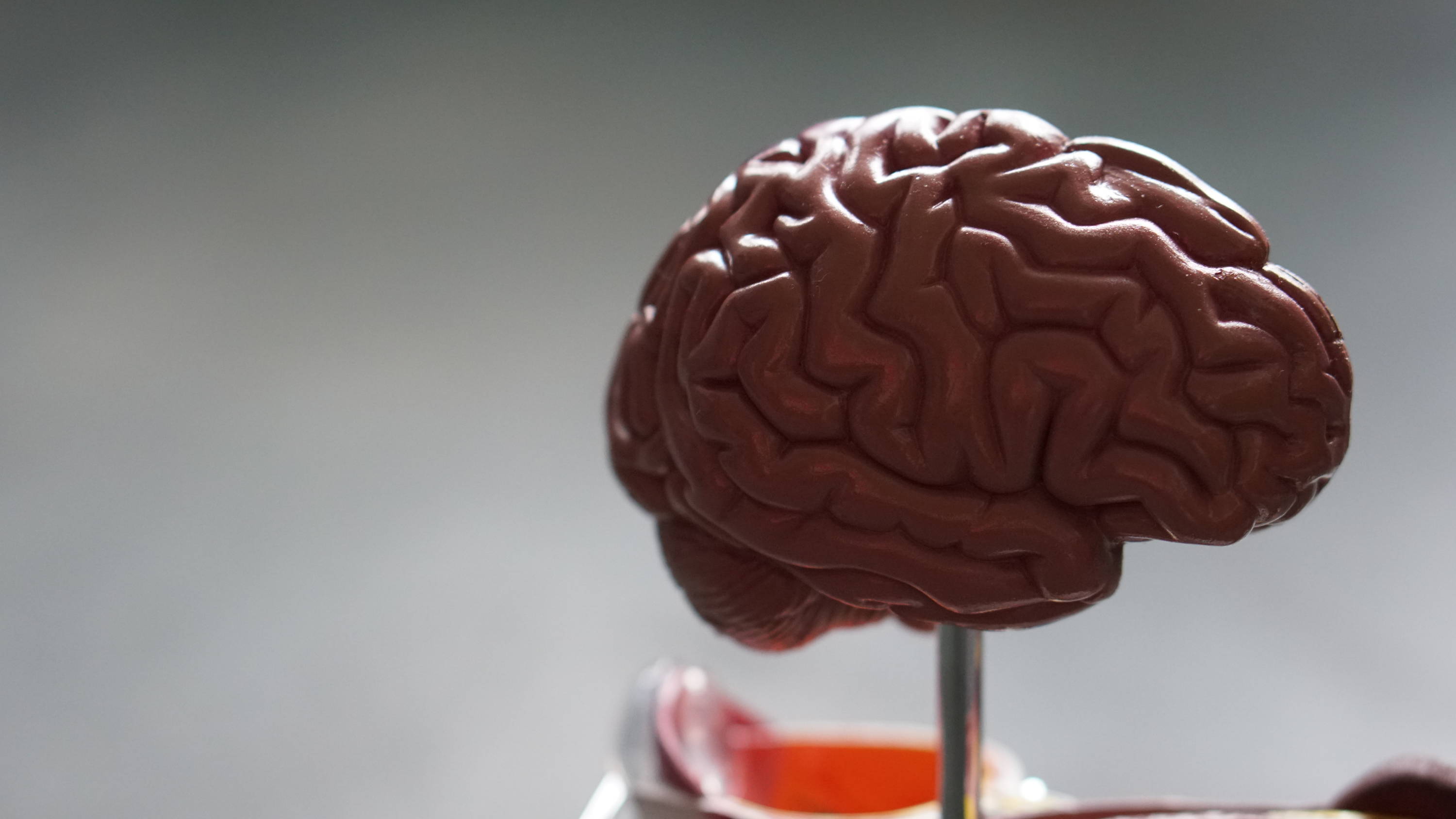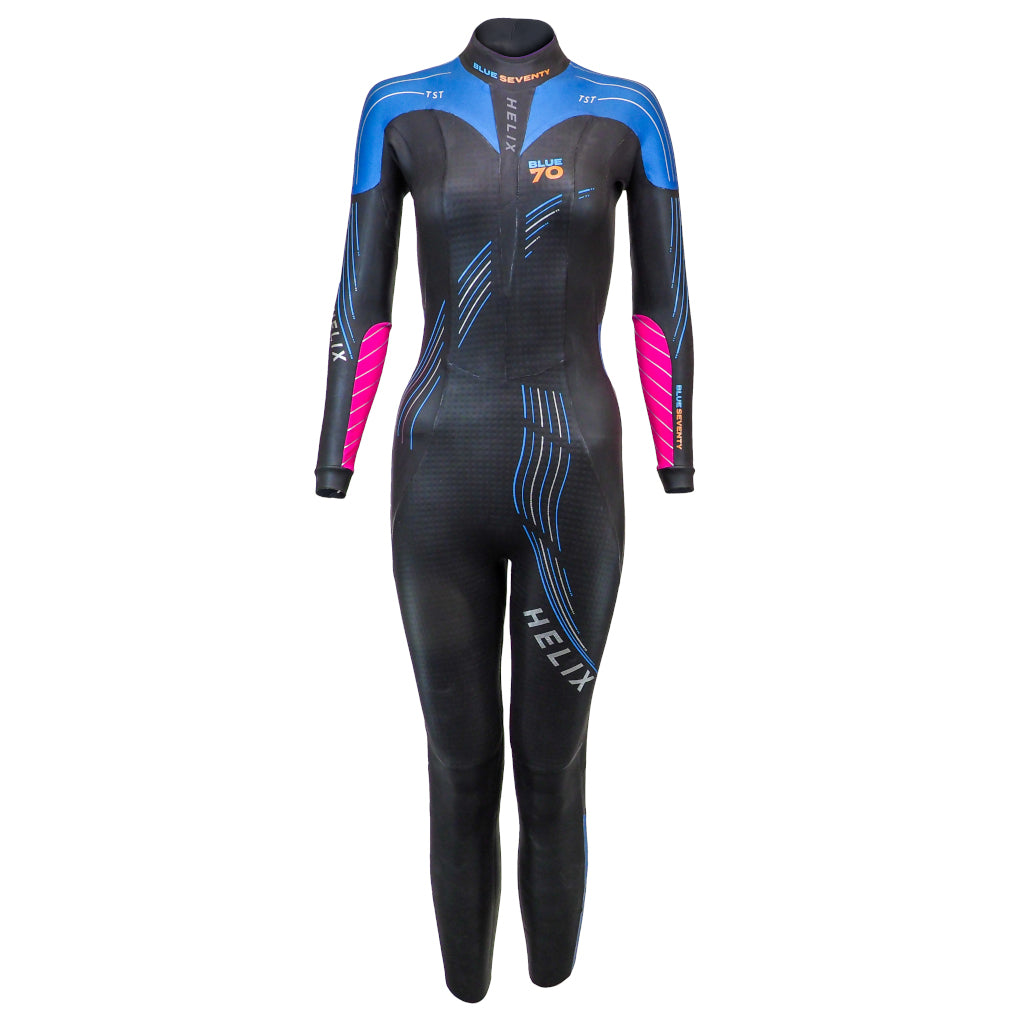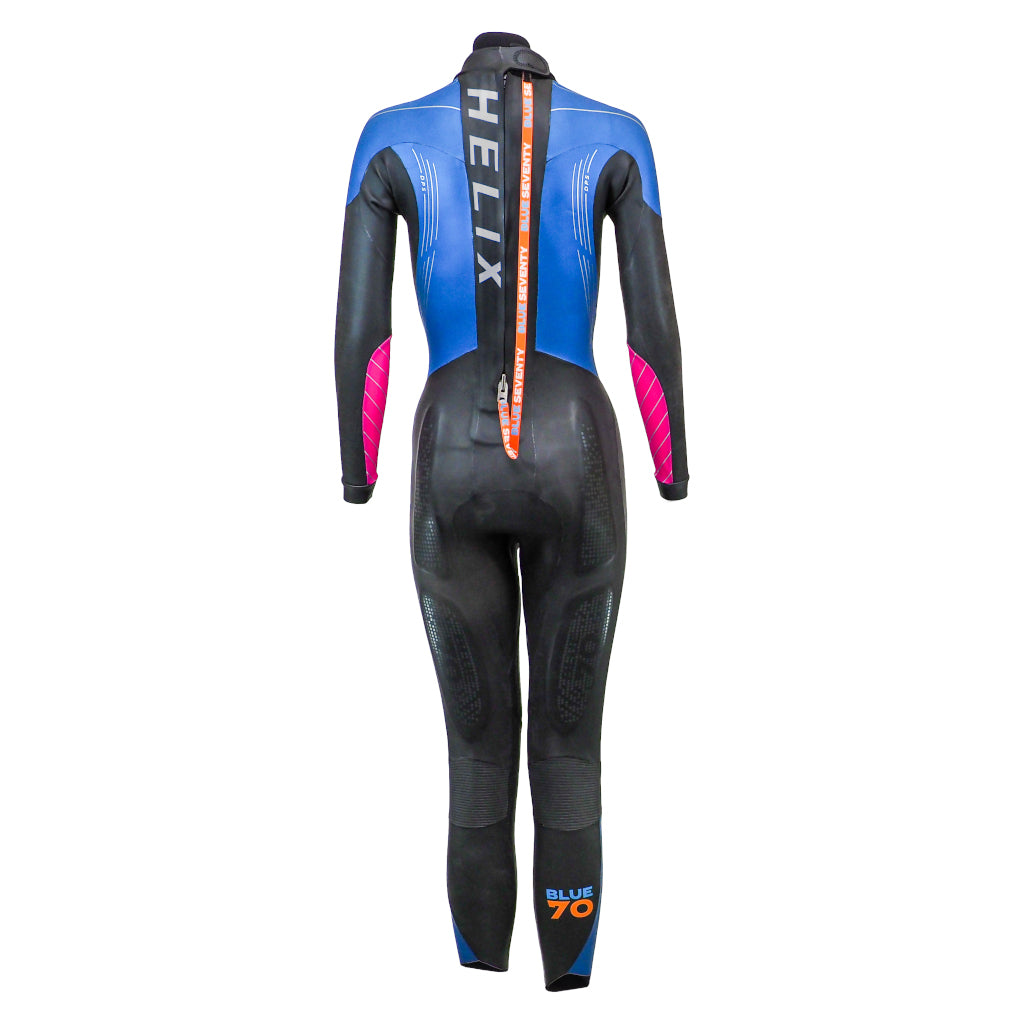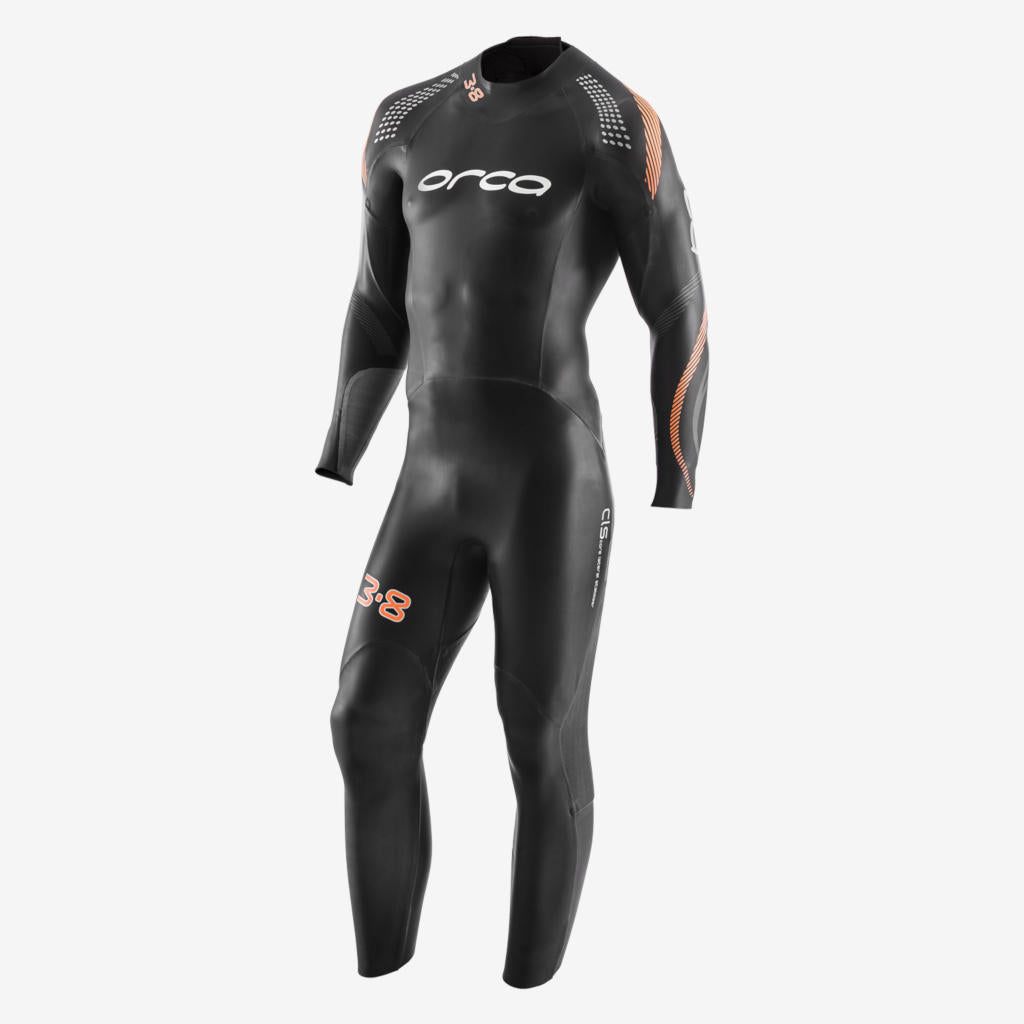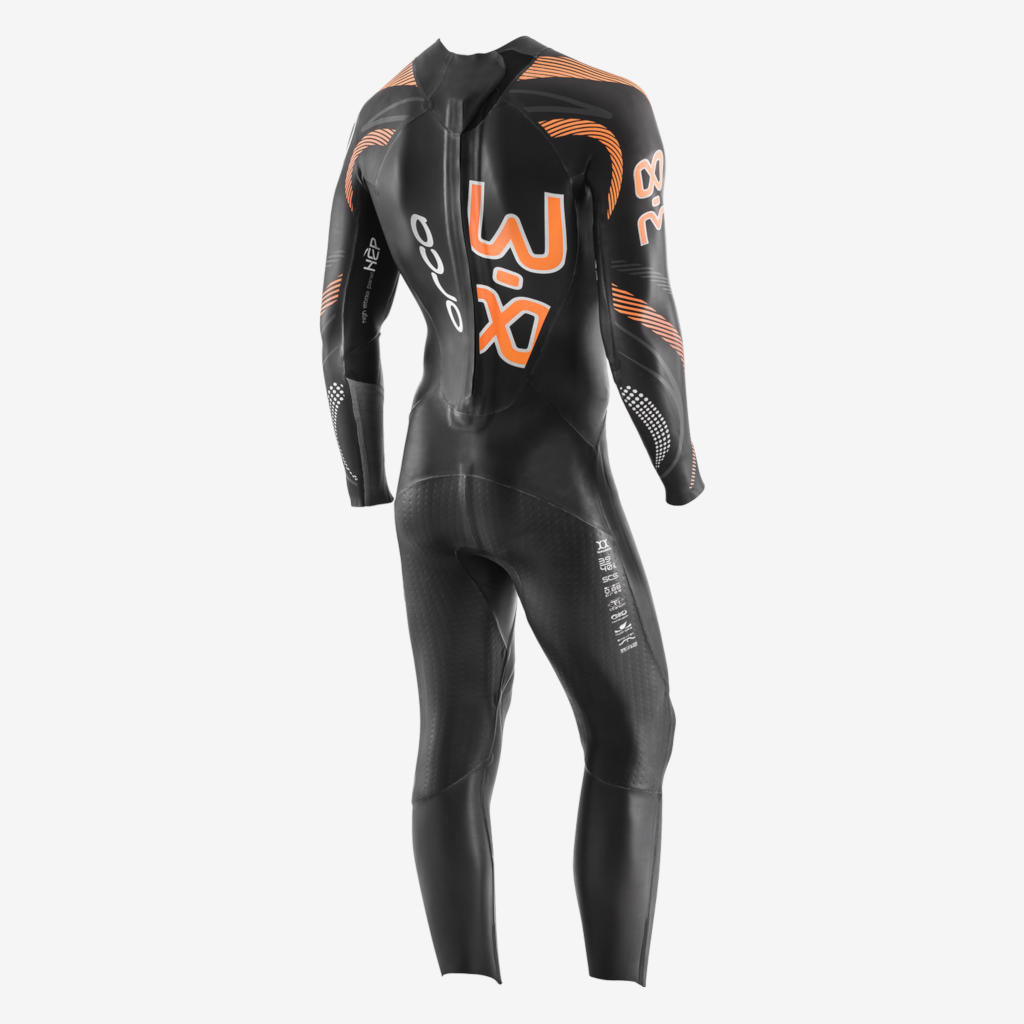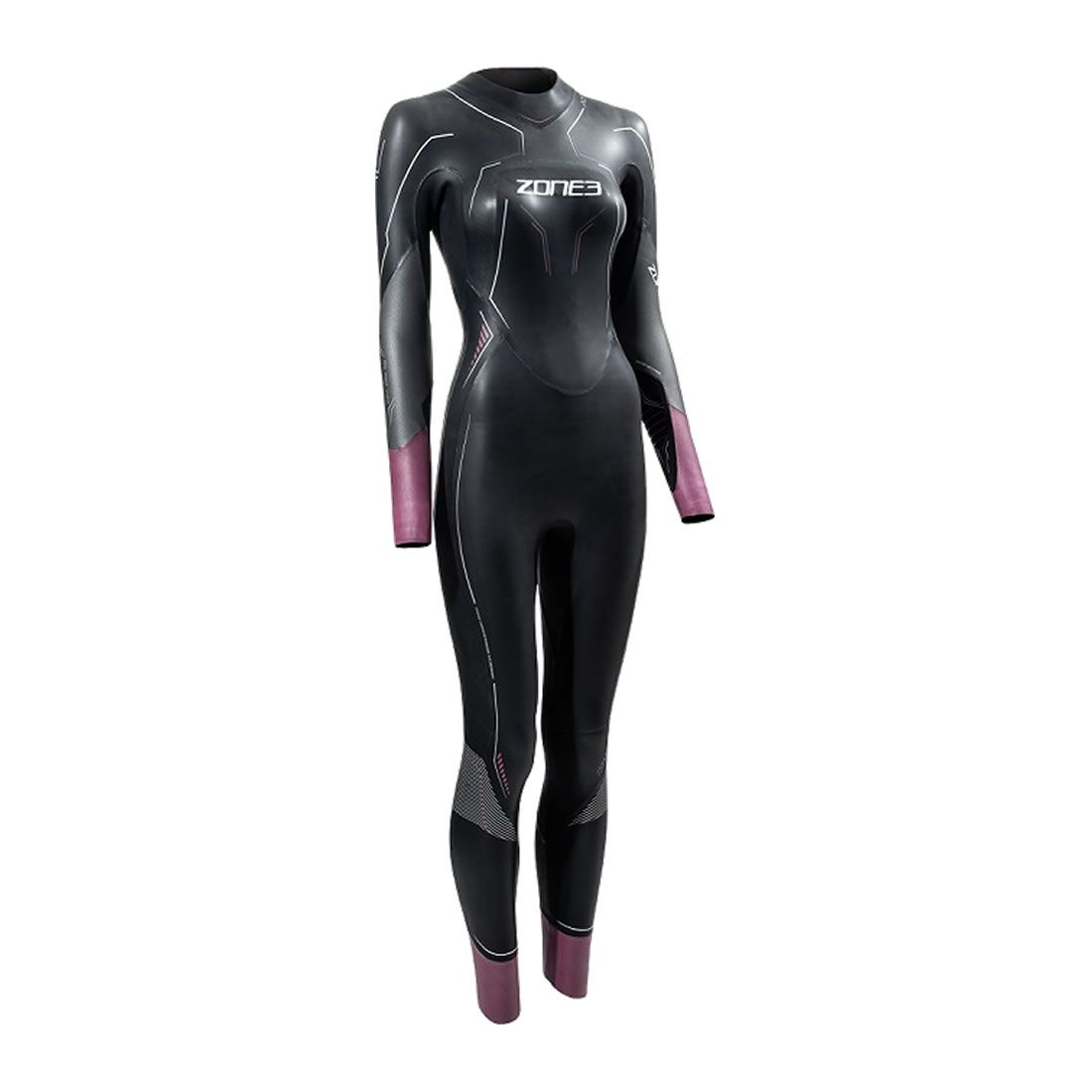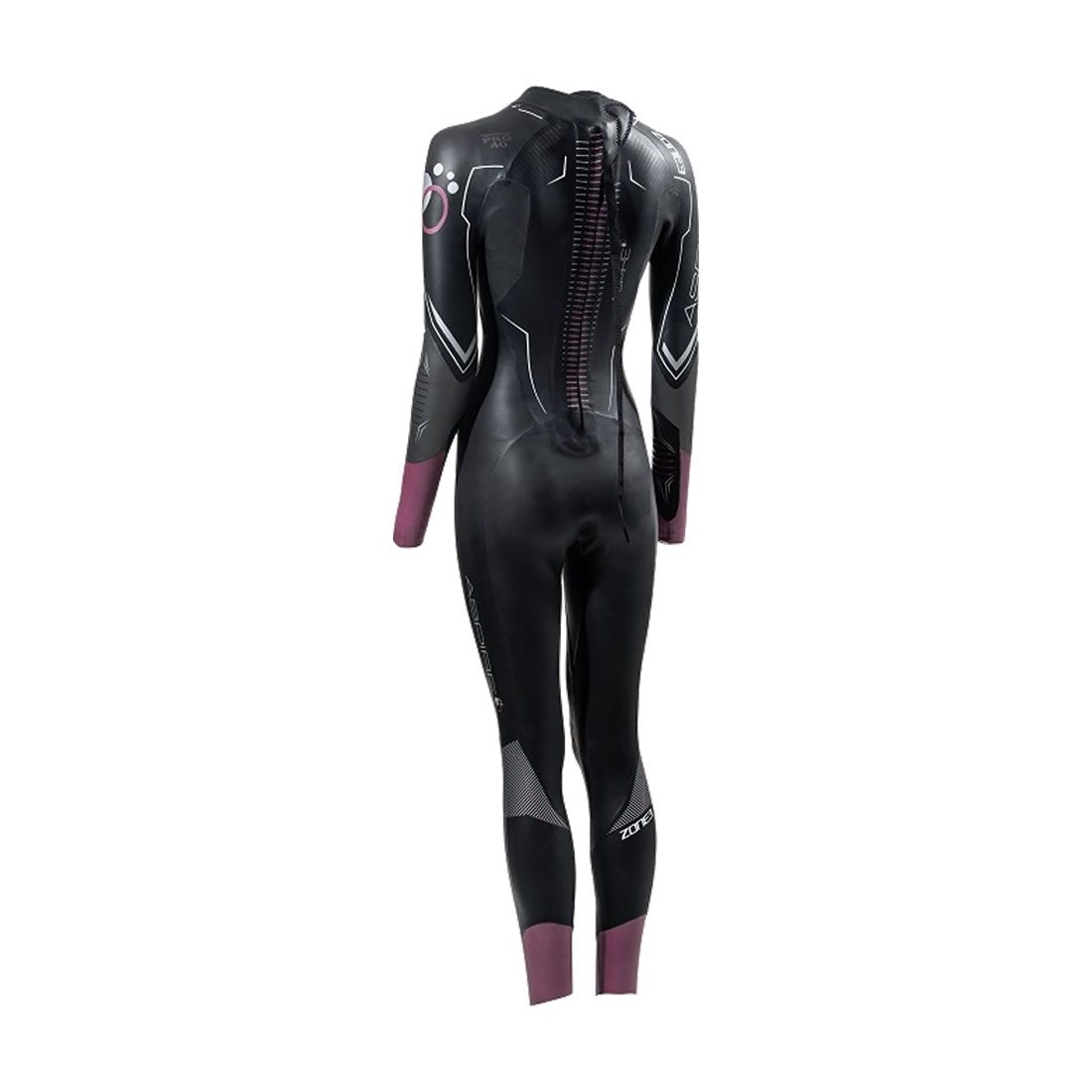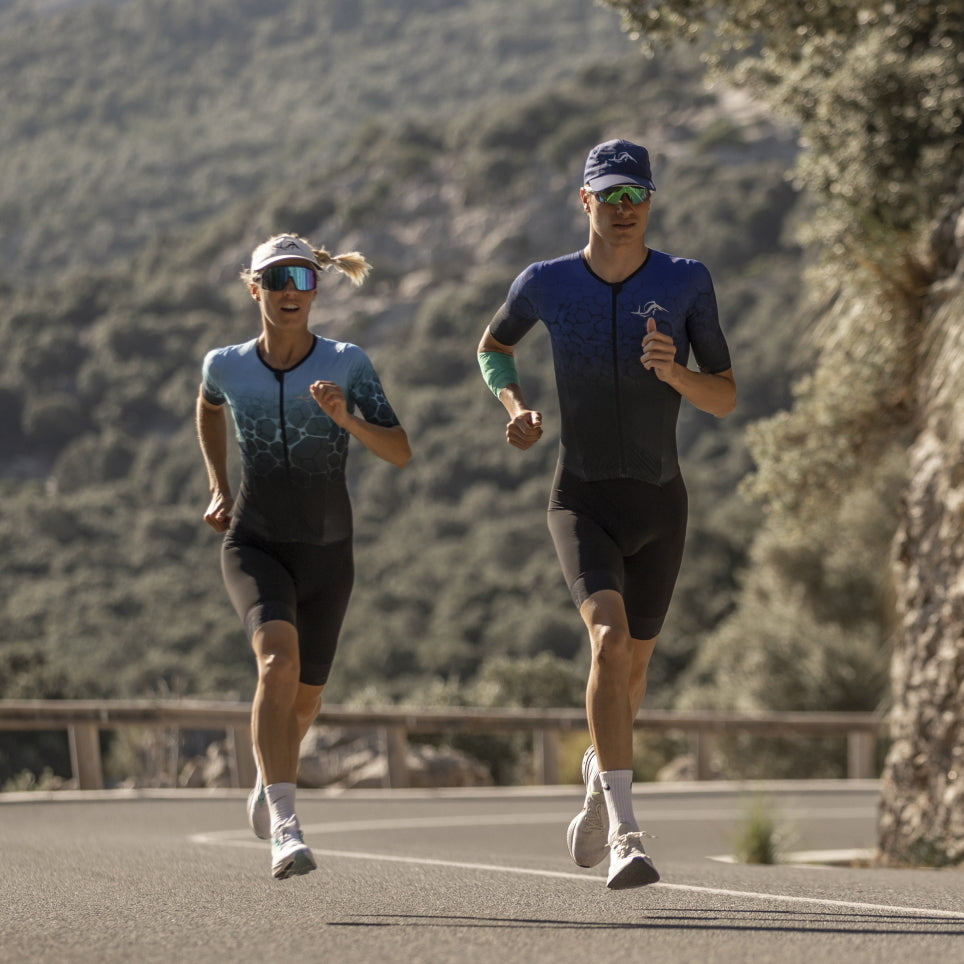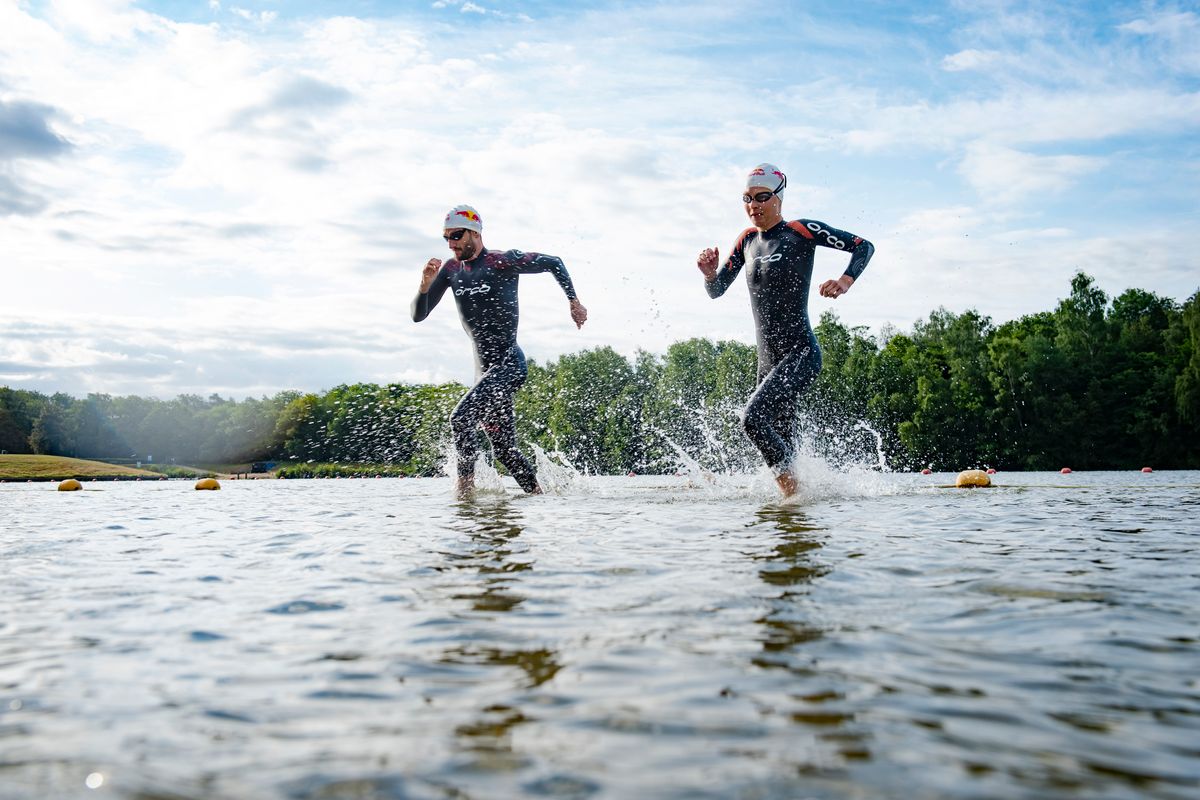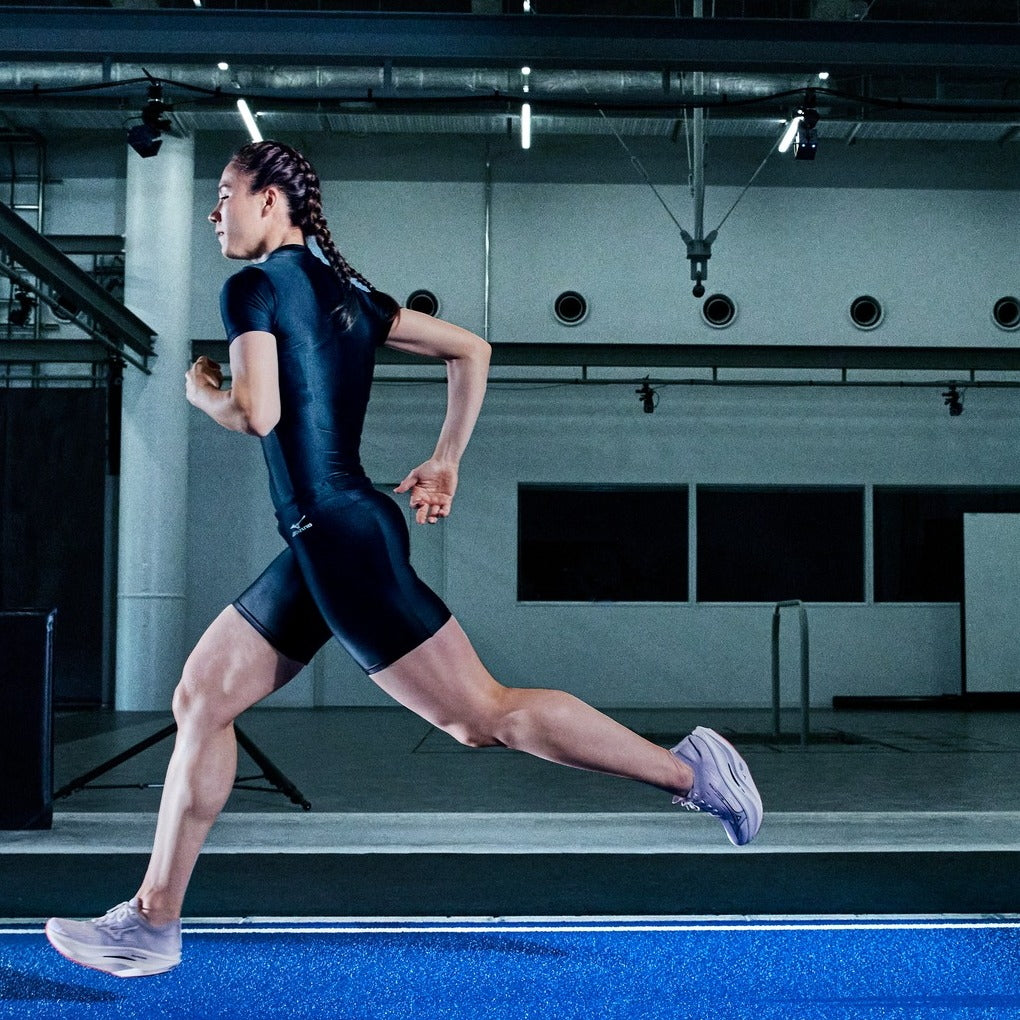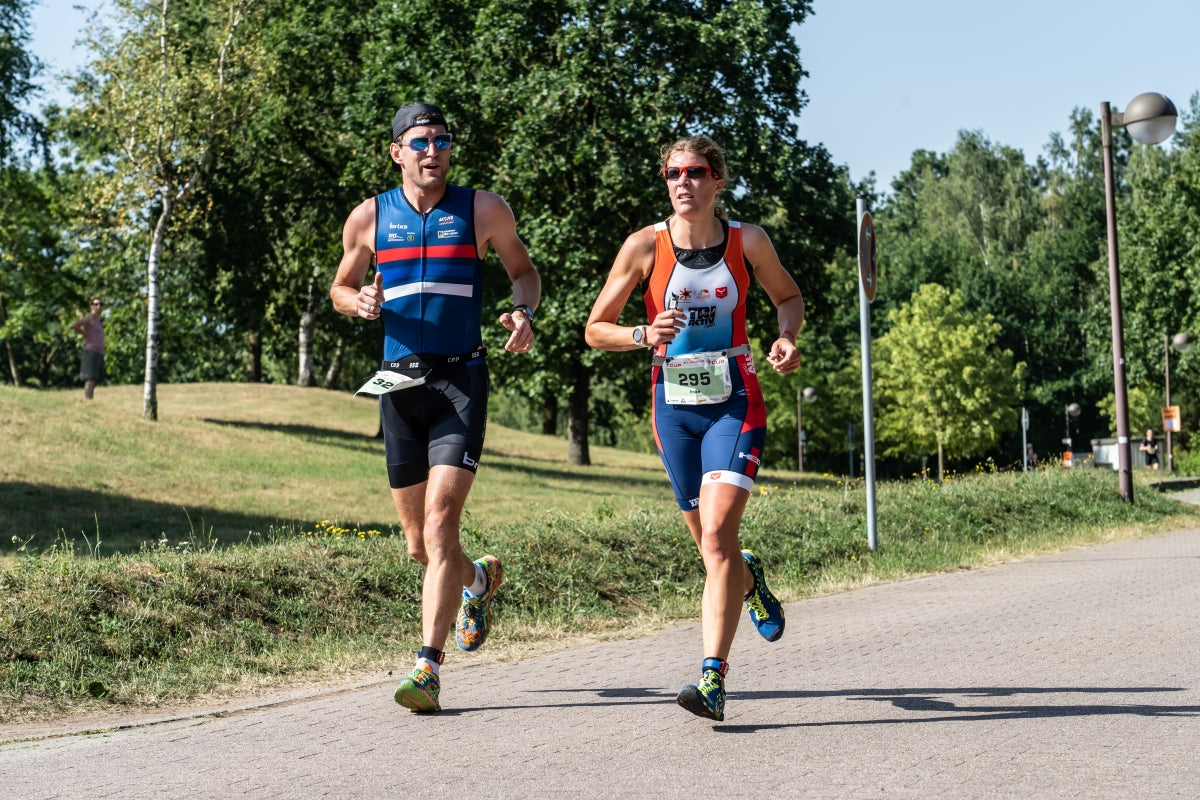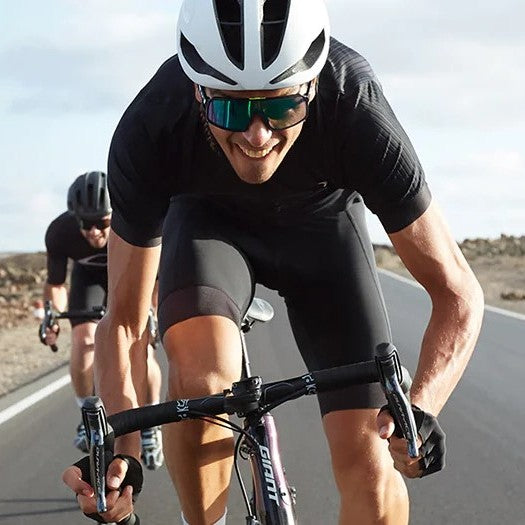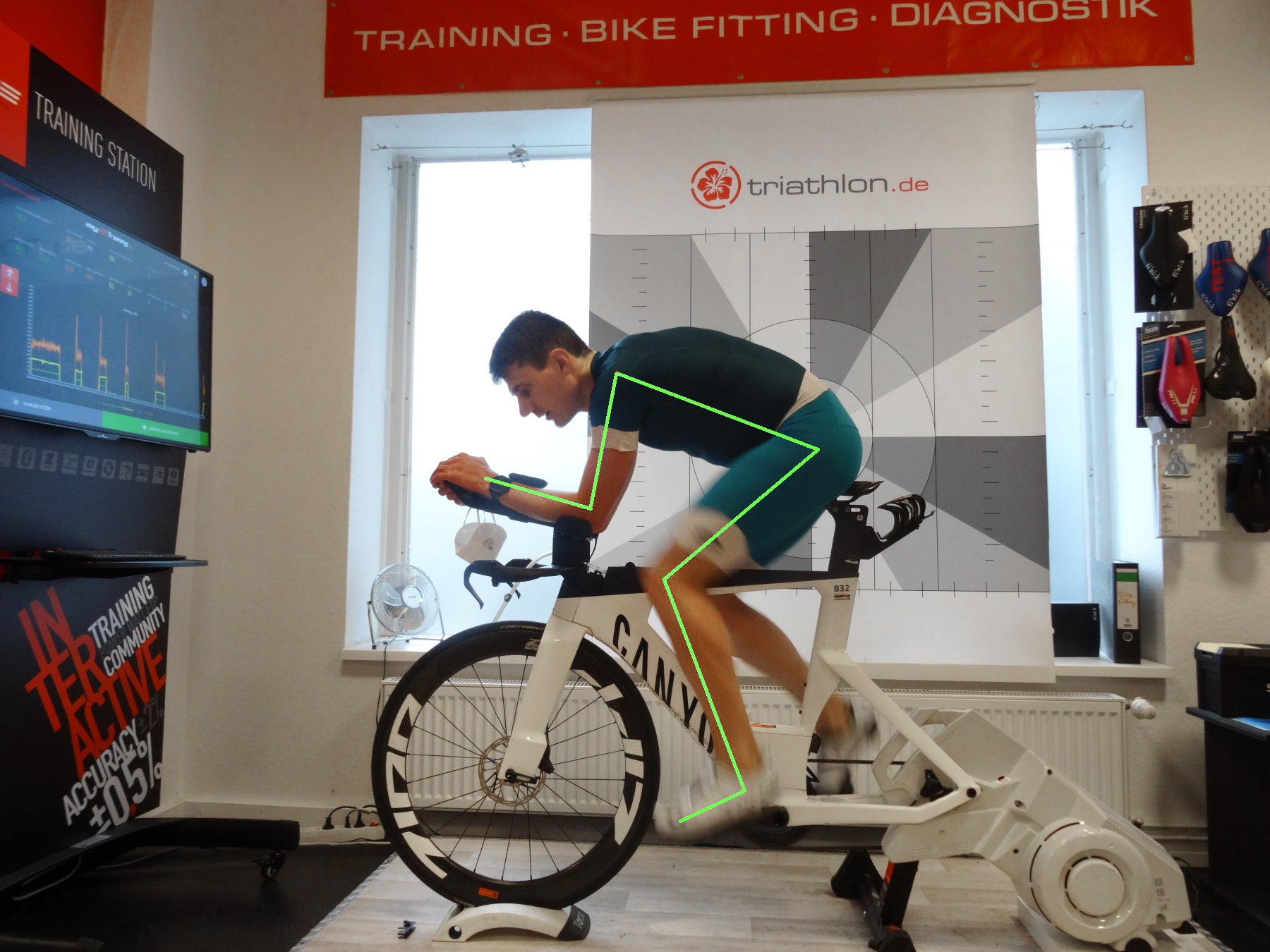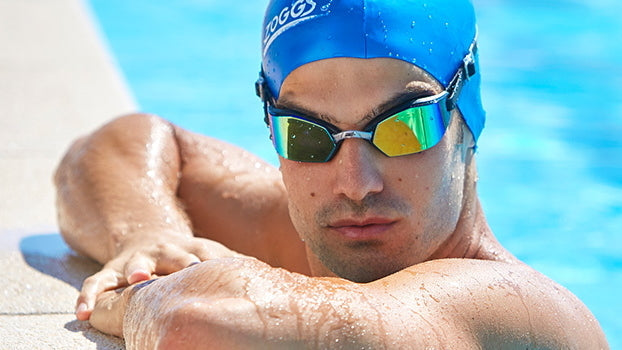Im ersten Teil des Artikels haben wir den Sinn und Zweck von mentalem Training erklärt. Mithilfe eines Fragebogens konntet ihr ein persönliches Leistungsprofil erstellen, um zu erfahren, wo eure Stärken und Schwächen in diesem Bereich liegen. Mithilfe von Beispielen wollen wir euch dieses Mal zeigen, wie ihr an euren Schwächen arbeiten könnt.
Christine Grammer, die Autorin des Artikels, hat ihren eigenen Fragebogen unter die Lupe genommen und zusammen mit Profi-Triathletin Sonja Tajsich analysiert. Sonja Tajsich arbeitet selbst schon lange im eigenen Training mit Methoden des mentalen Trainings und ist selbst als Entspannungstrainerin tätig – kann also aus eigener Erfahrung berichten und hat Tipps aus und für die Praxis.
„Ich hatte anfangs ein mangelndes Selbstvertrauen, das ist durch Erfolge viel besser geworden. Daran habe ich hart gearbeitet. Ansonsten bin ich mental ziemlich stark. An Motivation mangelt es mir nie. Ich kann gut mit den Emotionen umgehen und denke meist positiv. Ich arbeite noch gezielt daran, die Konzentration über einen möglichst langen Zeitraum aufrechtzuerhalten, “ so lautete z.B. das Fazit von Sonja Tajsich zu Beginn ihrer Triathlonprofikarriere.
In dieser kleinen Erläuterung tauchen einige wichtige Begriffe wie Motivation, Selbstvertrauen, Aufregung, Konzentration auf und Emotionen auf, die nun der Reihe nach bespochen werden.
- Motivation
Die Basis von mentalem Training ist die eigene Motivation. Am Ende der Saison bzw. am Anfang der neuen Trainingsperiode sollte sich jeder von uns realistische und erreichbare Ziele setzen. Ziele helfen uns zu wissen, wofür wir trainieren und können uns in schweren Trainingsphasen zusätzlich motivieren.
Einfache Dinge wie Zeitmangel, Stress im Alltag, Verletzungen oder auch Trainingsmonotonie können zu Motivationskillern werden. Durch positive Gedanken, kurzfristige und langfristige Ziele sowie individuell angepasstes Training kann man Motivationshindernisse umgehen. Holt euch soziale Unterstützung von euren Lieben, die das euer Engagement für den Sport unterstützen.
- Selbstvertrauen
„Wenn auf meinem Trainingsplan stand 200 km Radfahren, dann stellte ich mir niemals die Frage, ob ich das konnte, sondern nur in welcher Zeit ich das schaffe. Anders ging es mir mit dem Schwimmen. Es war ein hartes Stück Arbeit zu realisieren, dass ich es kann, wenn ich entsprechend positiv an die Sache rangehe. Ich lernte an meine Schwimmfähigkeiten zu glauben und nicht mit der Einstellung „Schwimmen kann ich eh nicht“ an den Start zu gehen, “ weiß Sonja Tajsich aus eigener Erfahrung zu berichten.
Unsere Gedanken haben großen Einfluss auf unsere Leistung. Positive Gedanken können uns motivieren, unser Selbstvertrauen aufbauen sowie uns beim Erlernen neuer Bewegungen helfen. Wenn wir positiv Denken können wir außerdem konzentrierter Handeln.
Negative Gedanken setzen sich in unserem Unterbewusstsein fest und wirken sich auf das Selbstwertgefühl auch negativ aus. Deswegen heißt die Devise, immer gut zureden: Das heißt z.B. positive Selbstgespräche im Wettkampf und im Training führen.
- Erregung
Fast jeder Athlet hat schon einmal ein Leistungstief im Training oder im Wettkampf erlebt. Es stellt sich die Frage, wie man solche Situationen am besten bewältigt. Um den optimalen Leistungszustand zu erreichen, gilt es seine Emotionen so zu beeinflussen, dass man das ideale „Erregungsniveau“ erreicht.
Gewisse Situationen wie ein wichtiger Wettkampf, eine kritische Situation im Wettkampf oder eine negative Beurteilung aus dem sozialen Umfeld, können zu Versagen führen. Stress oder Angst können unterschiedliche Auswirkungen auf unseren Körper haben.
Diese können sein: Körperliche Veränderungen (z.B. steigende Muskelspannung), Veränderung der Aufmerksamkeit (z.B. zu enger Fokus) und Nachlassen der Leistung (z.B. Zusammenbruch von Timing und Konzentration).
Folgende Taktiken können uns gezielt helfen:
- zu hoher Erregungszustand? Einsatz von Entspannungstechniken
- zu niedriger Erregungszustand? Einsatz von aktivierendem Aufwärmprogramm unterstützt durch schnelle motivierende Musik
- Entwickeln einer Vorstart-Routine
- Konzentration
Gerade auf der Langdistanz ist es schwierig, durchgehend konzentriert zu sein. Jeder hat seinen eigenen Konzentrationsstil. Manche konzentrieren sich im Training und Wettkampf ganz auf sich selbst. Andere versuchen sich, durch gezieltes „öffnen ihrer Aufmerksamkeit“ locker zu machen und nicht an den anstehenden Wettkampf zu denken.
Lernt euch auf die kontrollierbaren Dinge zu konzentrieren.
Mitstreiter, Witterungsbedingungen oder das Streckenprofil könnt ihr nicht beeinflussen. Sich auf diese Faktoren zu konzentrieren, kostet nur unnötig Energie.
Denkt positiv und vermeidet negative Gedanken.
Konzentriert euch auf das, was im Wettkampf relevant ist und was ihr gerade tut und richtet das Augenmerk darauf, das ihr euch selbst verbessert und nicht ständig mit anderen vergleicht.
- 5. Emotionen
Gerade bei lang andauernden Rennen erlebt jeder Höhen und Tiefen. Das Rennen wird zum mentalen Kampf gegen sich selbst. Man sollte sich immer bewusst machen, dass wenn eine Disziplin nicht nach Wunsch funktioniert hat, immer noch zwei weitere kommen, in denen man Höchstleistungen erbringen kann, aber nur, wenn man positive Emotionen zulässt und bewusst erlebt.
Versucht eure Emotionen zu beherrschen. Versucht auf die Situationen zu achten, welche negative Emotionen bei euch hervorrufen. Neue Verhaltensmuster mit Emotionen wie Begeisterung, Stolz, Freude und Glück zu belegen, sind emotionale Ziele, die es zu erreichen gilt.
- Schmerz
Schmerzen gehören im Training und Wettkampf dazu, wenn man an seine Grenzen geht. Jeder sollte daher lernen, Schmerzen zu tolerieren und neue persönliche Grenzen zu erreichen. Vor allem durch positive Emotionen können wir unser Schmerzempfinden beeinflussen. Wenn es gut läuft, haben wir gefühlt weniger Schmerzen. Meist gilt: Schmerzen sind Verbündete und schnell vergessen, sobald man die Ziellinie überquert hat.
Wichtig ist aber, dass man noch zwischen einen Leistungsschmerz und einem Verletzungsschmerz unterscheiden kann. Ist der Schmerz auf einen bestimmten Körperteil beschränkt und hält er über die Belastung hinaus an, sollte man auf seinen Körper hören und nicht verbissen weiter machen.

